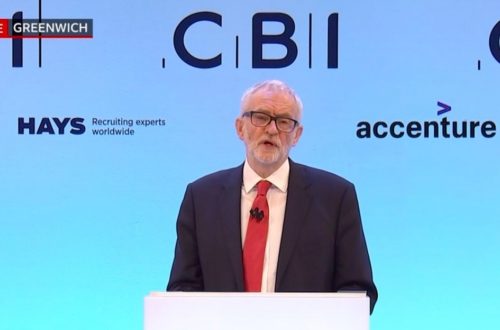The Batley and Spen by-election didn’t deliver the Conservative gain some had expected although the predictions, unlike for Hartlepool, weren’t overwhelming.
In Hartlepool sufficient of those who’d supported the Brexit Party in 2019 subsequently voted the way they’d have voted had Farage stood down his candidate.
Chesham and Amersham was the LibDem by-election “machine” delivering what was once reasonably regular.
Unlike the other recent by-elections there aren’t obvious factors to explain the result, particularly with 15,000 fewer people voting. If more Conservatives had simply stayed home that would have resulted in a Labour victory.
A Conservative success was mainly predicated on sufficient of the almost eighth of the votes taken by the Heavy Woollen District Independents in December 2019 moving to the blue corner. Looking back that was risky as there’d been a Brexit Party candidate who’d taken 3.2% which was probably the only 2019 cohort with a decent likelihood of turning blue.
The campaign was widely reported as having been toxic, a by-election often attracts a basket of deplorables from what could be described as the “street fighting” tradition which probably made it inevitable, although Labour was far from innocent.
Without the detailed information regarding vote switching that comes from general elections it’s only possible to look at some relatively unambiguous issues and remember that a majority of 323 could easily come from a small number of votes from each of several factors.
A local candidate, and by all accounts a good and fairly well known one, has to be an asset. It would be extremely perverse to argue that being local could cost votes.
It’s been reported that Labour’s Get Out The Vote (GOTV) operation and the resources available were superior.
The Hancock affair was poorly handled and could have been another Cummingsgate. Hancock learnt about the story on Thursday evening and the country on Friday morning. PM’s obviously don’t want their cabinets decided by Fleet Street but Hancock admitted he’d broken the rules. With Cummings a defence was mounted but the argument was lost in the Court of Public Opinion.
There are lots of negative things said about Johnson, mostly by those who don’t like him, but in trying to keep Hancock he wasn’t disputing that the rules had been broken but saying that they didn’t matter! Hancock slept on it before falling on his sword, probably realising that he had to make a statement in the Commons on Monday and, even with the PM’s support, his position was untenable.
Good politics often comes from deciding which battles to fight, and the government’s record is patchy. The rules either matter or they don’t, the latter is the road to anarchy. Hancock should have been replaced on Friday morning, before the lunchtime news.
Galloway’s avowed intention to get rid of Starmer could easily have been a double-edged sword, encouraging some to vote for Labour. It should also be noted that he stood on a pro-Brexit and small “c” conservative platform.
The minor parties picked up votes, the bottom twelve polling a total of over 1900.
There are plenty of places to get 323 votes from to give a different result and that’s without remembering that a switched vote counts double, had 162 Labour supporters voted Conservative there would be celebrations at CCHQ.
As we head to the recess after a by-election “season” the overall scores are:
LibDems: 1 gain.
Conservatives: 1 gain, 1 loss.
Labour: 1 loss.
Labour will be taking the champagne off ice after a massive effort paid dividends. They should, however, think carefully about whether their (small margin of) victory was because they did well or because of Conservative mistakes. Looking back to 2017 it was clear to some of us that May’s failings were a major factor in Corbyn’s better than expected showing, but the average Corbynista took it as indicative of widespread support for Corbynism – 2019 proved them wrong.
It’s entirely possible that the mishandling of the Hancock affair gave Labour victory, or that it was Galloway’s anti-Starmer rhetoric. This is a seat held by Labour since 1997 and they were up against a government in power for eleven years. With all of that they still had a swing of almost 3% against them.
Although the Conservatives narrowly missed out the swing towards them supports the conclusion from Hartlepool that more Labour seats could turn blue, what’s been called a Red Wall 2.0.
Electoral “mechanics”, things like GOTV, can be fixed but is Johnson still in City Hall mode? There are always scandals in politics but those at Westminster make all the front pages and lead the TV and radio news bulletins. At City Hall the opposition can huff and puff but the media, and public, take little interest.
It was blindingly obvious that Hancock had to go, but it took over thirty hours rather than three and, as importantly, played to the “them and us” narrative that Labour have been trying to push. Everything I’ve learnt about the Red Wall voter suggests that fairness matters to them, and Labour making a cronyism narrative stick could be very damaging.
By-elections are unique as the kitchen sink can be thrown at them and voters often use them to kick national parties, but there is nothing to suggest that Starmer is on his way to Downing Street, at best it’s temporarily pulled the rug out from under his internal critics. If the Conservatives learn the lesson about Downing Street decision making they could be on track for a larger majority.





